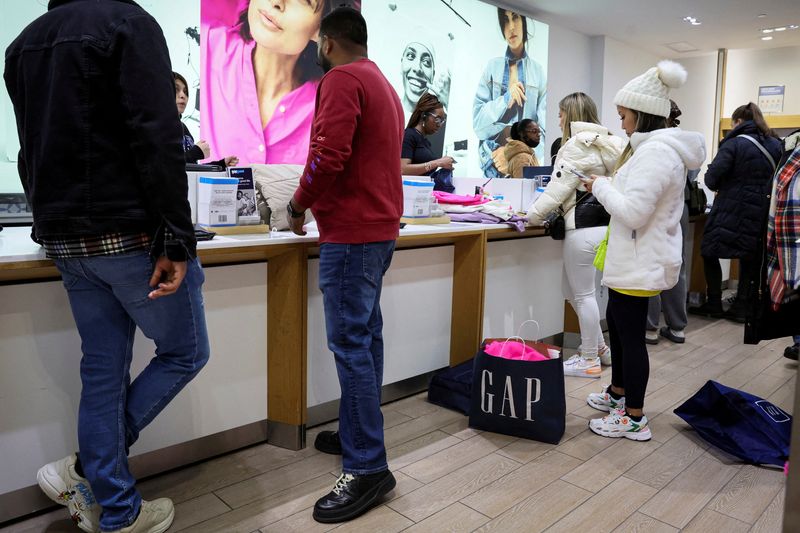By Granth Vanaik
(Reuters) -Shares of Gap soared about 28% on Friday after the apparel retailer lifted its full-year sales target, indicating that its effort to revitalize the business by bringing in newer styles is starting to bear fruit.
The stock is on track to its biggest one-day percentage gain since November and has risen over 37% this year, including Friday's gains. This follows a growth of over 85% in 2023.
Gap's upgraded outlook gives Wall Street fresh proof that CEO Richard Dickson's turnaround strategy - to introduce trendier styles across its brands and ramp up marketing efforts to attract picky shoppers - is paying off less than a year after he joined the struggling mall retailer from Mattel (NASDAQ:MAT).
"(Dickson's) personnel, product, and operating changes have already re-invigorated a company that had been floundering for years," said Morningstar analyst David Swartz.
The Banana Republic owner now sees annual sales slightly up from last year, compared with prior expectations of roughly flat sales.
Gap's eponymous brand posted 3% comparable sales growth in the first quarter, while the Old Navy and Athleta banners posted 3% and 5% increases, respectively.
"While it is still early days for Gap’s turnaround plan, the Gap brand feels fresh again. It is on-trend and gaining cultural cache," said Emarketer analyst Zak Stambor.
The average rating of 20 analysts on Gap's stock is "hold", with a median price target of $23, according to LSEG data. As many as 10 brokerages lifted their price targets on Friday. The stock was last trading at $28.65.
Gap's median price-to-earnings multiple (P/E) for the next 12 months, a common benchmark for valuing stocks, is about 15, below its two-year average of 17, according to LSEG. That compares to an industry median PE of about 13.

Retailers including Walmart (NYSE:WMT), Target and Gap's peer Abercrombie & Fitch have indicated in their recent results that apparel demand has begun to pick up after a slowdown last year.
Gap has gained share in a competitive market where the consumer remains extremely choosy, said Mari Shor, an equity analyst at Columbia Threadneedle Investments.